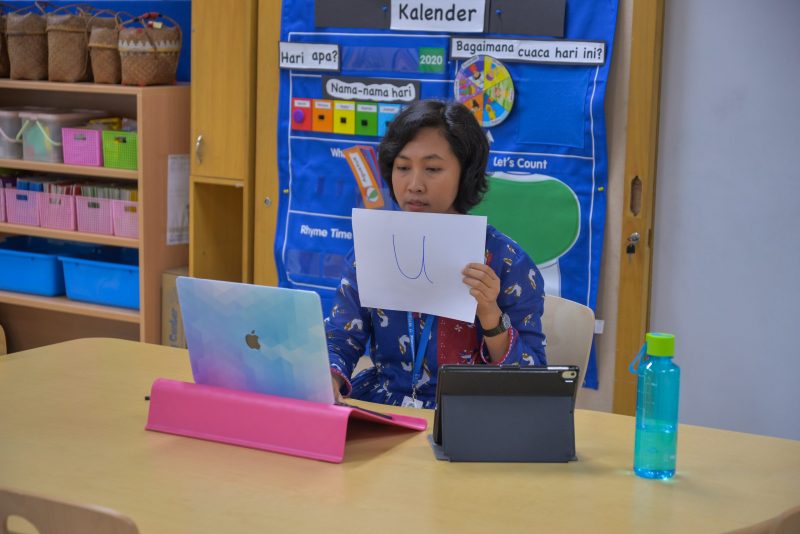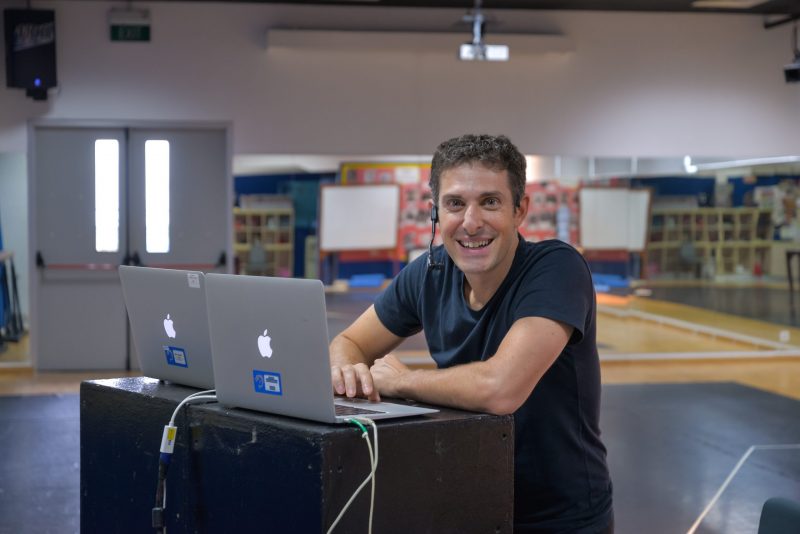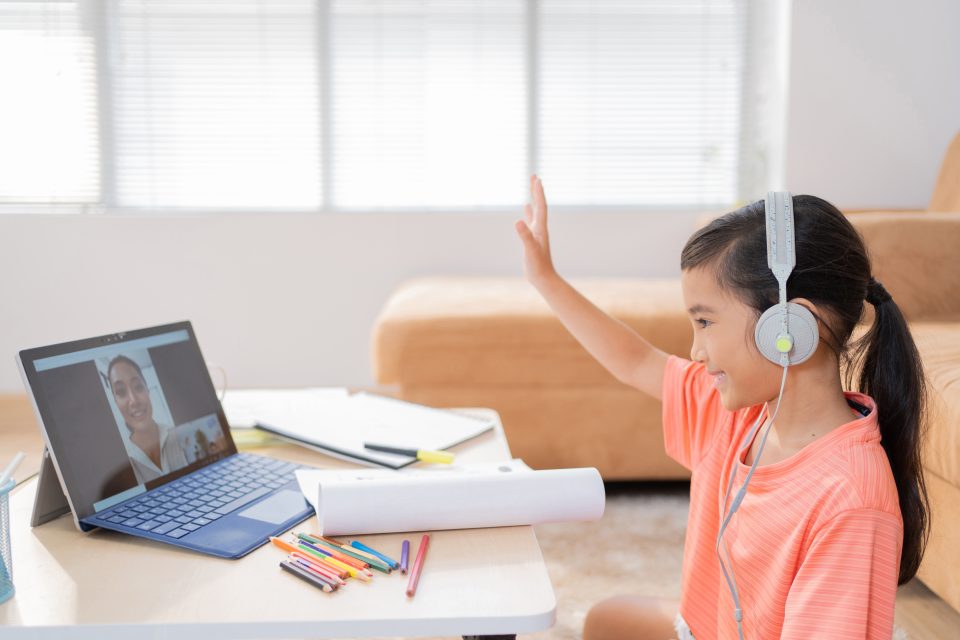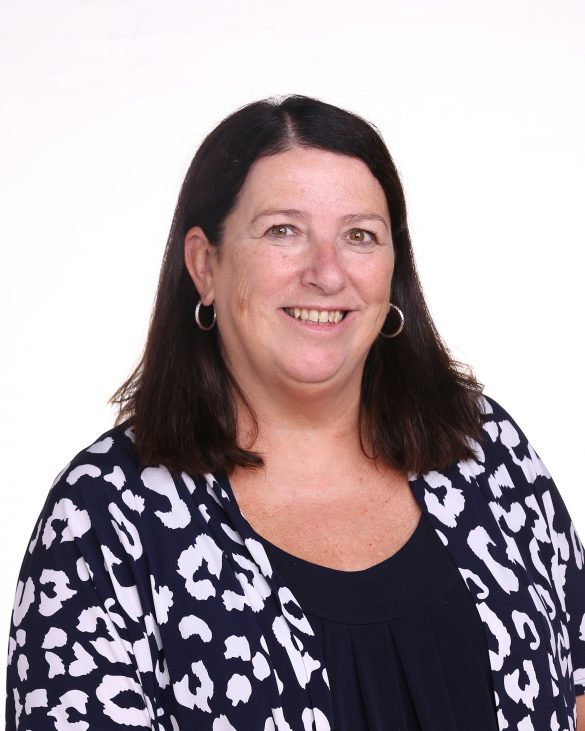In an exclusive roundtable interview, the principals of Jakarta Intercultural School talk about adapting to digital classrooms and education in a time of crisis.
The world was thrown into a tailspin last year with the emergence of a fast-spreading virus that we’re still grappling with today. For schools that were once a bustling hub of learning and activity, still-decorated classrooms remain without the lively chatter of students.
Behind the ostensible stillness, however, teachers and administrators are hard at work preparing and delivering online lessons to students who continue to learn from home.
Jakarta Intercultural School (JIS) was one of the first schools in the capital (and the country) to make the digital shift more than 10 months ago. The school’s Home & Online Learning program has gone through some adjustments since, adapting to better meet the students’ academic and socio-emotional needs while rigorous learning remains.
JIS principals Justine Smyth and Jill Bellamy (elementary school), Noah Bohnen (middle school), and Clint Calzini (high school) recently sat down for a roundtable discussion to share their reflections on the school’s Home & Online Learning program, and how JIS has continued to ensure student success during this unprecedented time of crisis.
What has been the biggest challenge in Home & Online Learning for teachers and students? What steps have you taken to resolve those difficulties?
Bohnen: The greatest challenge we have faced since we rebooted Home Online Learning this year has been the social component for Middle School students. We want to connect students to the campus and each other. To address this issue, we have consistently looked for opportunities to provide all of the “extras” that make JIS Middle School special — volcano challenges, Bali stage assemblies, and after-school clubs and activities — in a creative and virtual way. Going forward, we are looking to provide more of these opportunities while maintaining or refining our online learning product.
Bellamy: Teaching online and staying true to our philosophical approach to teaching and learning. Keeping whole class lessons short and teaching differentiated small group and individual lessons was initially very challenging. Teachers were very creative and innovative and explored ways to have children in break-out rooms using multiple devices. They then shared their ideas and expertise with each other.
What part of JIS’s Home Online Learning programs has been particularly successful? Was that surprising to you?
Smyth: When we switched from asynchronous to synchronous, we found that more children were able to be successful with their learning. It gave the children the opportunity to ask questions and confer with the teachers in real-time. It also took the pressure off the parents to be educators and placed that role back with the teachers. The homeroom subjects of literacy and maths have been the most successful. The hardest are performing arts and PE (physical education).
Bohnen: Three things surprised me. The first was what a huge impact synchronous instruction had on the experience for students and families; it just feels like “real school” and the students have embraced this new normal. The second most surprising thing was how resilient and adaptable our students have proven to be. The vast majority have been mastering their learning targets. The final surprise was how quickly, capably, and creatively our faculty adapted their practice for online instruction. The classes that I drop in on are vibrant, participative, and absolutely rigorous.
What are the best ways parents can support their students at home?
Bellamy: A great way to start is by setting up a productive learning space. It is never too early for school-age children to begin thinking about how they learn best and how their environment affects how they think, feel, and behave. Parents can reinforce this reflective learning at home by involving children in the setting up of their learning space.
This brings us to fostering independence — one of the goals of every parent is to help their children become independent, self-sufficient adults. Online learning is a great way for children to develop this independence. Your child’s teacher has provided your child with a class schedule; ask your child to review the schedule for the day and ask them if they understand what they need to do and when. With practice and support, all children (even our youngest learners) should be able to access their zoom links on their own. They should also be able to get their own supplies when needed. A helpful principle that parents might want to keep in mind is: “Never do for a child what he/she can do for themselves.”
Calzini: Three ways — talk to them daily about how they are going, and just listen. Support their needs and seek help from the school if things are not going well.
How do you keep students engaged in virtual learning?
Smyth: Social interaction is more important than ever as we continue our Home & Online Learning program. We make it a priority to provide students with various opportunities to socialise within the school day through our social Zooms. Providing community time events and challenging experiences also allow children a break from routine.
Calzini: Teachers work hard at this by changing lessons and checking in with students — generally providing variety. However, there are times when staying engaged can be difficult, and we talk a lot about resilience at JIS. Sometimes, like all things, when it gets difficult, you have to dig deep and push through. That said, social-emotional well-being should not suffer to the point of damage, so this is when parents need to step in to support them or call the school to get the support the students need.
Are kids falling behind and how is JIS working to make sure that doesn’t happen?
Smyth: It is challenging to discern whether moving from face-to-face to online learning is creating a difference in expected performance. For example, some students have made huge gains in reading this year, gains that have far exceeded the growth we typically expect in a year, while others have continued to meet the expected growth targets. Our focus is to ensure all students have access to rigorous learning in alignment with our school’s high standards. We intentionally designed our online learning ecosystem to provide students, teachers, and parents with daily opportunities to connect with and be directly supported by their teachers.
Bohnen: JIS, like all schools I have wished to be a part of, is an inclusive school. We embrace students of all races, religions, and nations. In that diversity, we support learners from a wide variety of ability levels and approaches to learning. For the most part, we have not seen that online learning has caused more kids to fall further behind. We always have some students who struggle with executive functioning and we always have counsellors, student support services, and above all, caring teachers who are here to support our learners. We will emerge from the pandemic with JIS students who will have all of the skills they need to have.
How has this experience changed or affected your personal philosophy on teaching and 21st-century learning?
Calzini: I have always known the importance of the socialisation of adolescents at school, but it is even more clear to me that “school” is much more than just teaching and learning. Students need to have human interaction with their peers and teachers through athletics, service, and activities — these types of engagement are crucial for their development and social-emotional wellbeing.
Bellamy: I have always believed a conceptually driven, inquiry approach that develops 21st-century skills is the best methodology. We [educators] have been talking about developing independent learners and the importance of developing transdisciplinary skills since the start of this millennium. One thing online learning has shown me is that we can do this better as our children still heavily rely on us for their learning. Once we are back with face-to-face learning, I think we should increase focus on transdisciplinary skills and developing kids’ agency and efficacy as learners.
You can meet and hear more from all of our principals at JIS’s upcoming Virtual Open House events on Feb. 26 for High School, Feb. 27 for Middle School, and March 5 for Elementary School.
Also Read JIS Prepares 21st-Century Learners for a Globalised Future








